Participants from different walks of life gathered for two days (24-25 May) in the western German city of Dortmund to commemorate the 2019 Africa Day. The Day marks the anniversary of the founding of the Organisation of African Unity (now African Union) on 25 May 1963.
The event, celebrated in the city by AfricanTide Union for the ninth year, brought representatives from different African countries together to deliberate on the challenges facing the economic development of the continent and fashion the way forward.
The theme of the conference was “Boosting Africa’s Development – The 2063 Agenda”, a reference to the ambition of the African Union to, by that date, create a prosperous Africa based on inclusive growth and sustainable development.
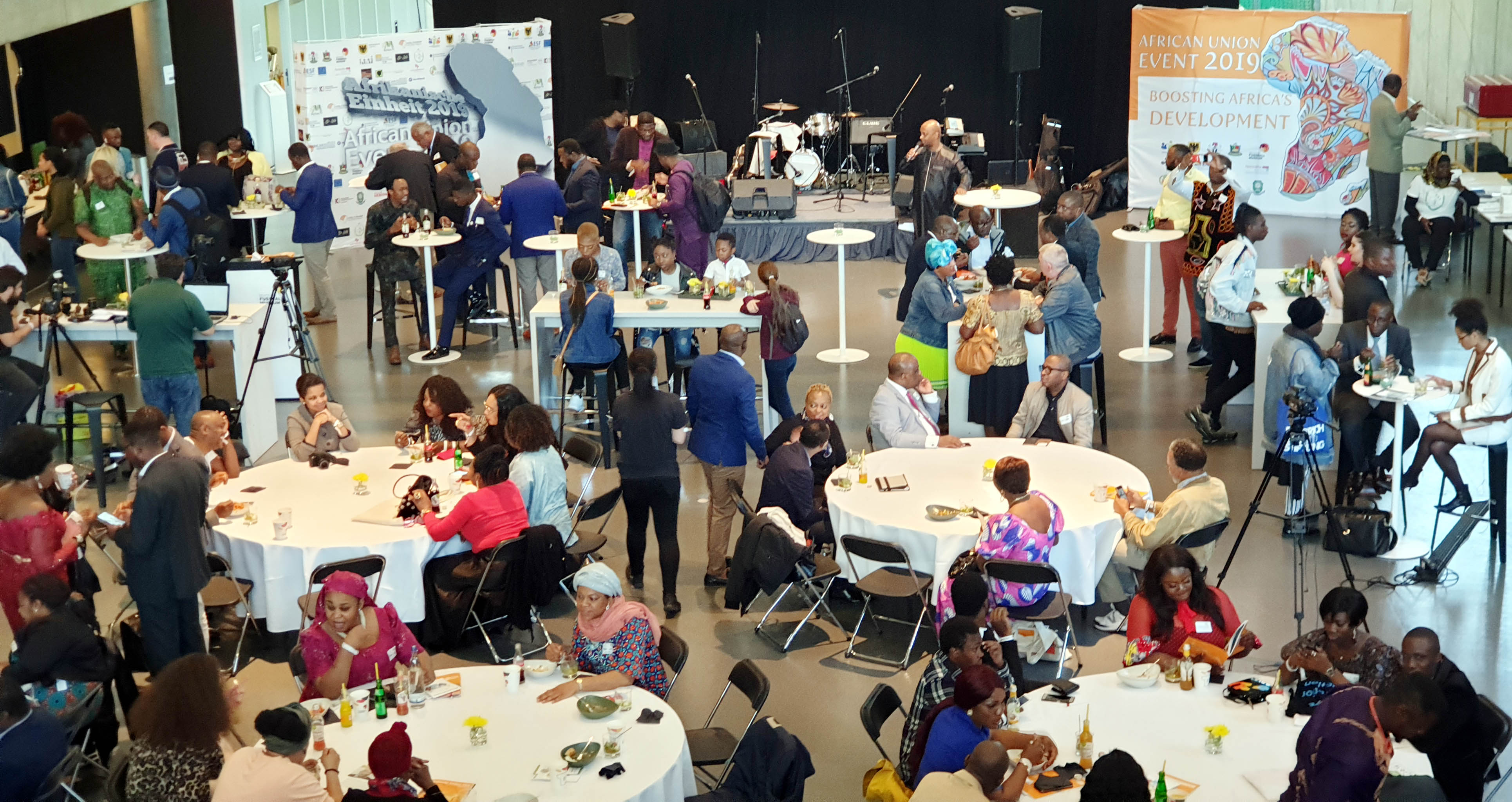
Ably moderated by Rahime Diallo and Tari Weber, the opening ceremony was attended by dignitaries, including Jörg Stüdemann, the City Director of Dortmund; Ambassador Mobolaji Sakirat Ogundero, Deputy Chief of Mission at the Embassy of Nigeria in Germany; Prof Jason Osai, Head of Department of Political Science, Rivers State University, Port Harcourt, Nigeria; and Prof. Adams Bodomo, Director of the Centre for Global African Diaspora Studies, University of Vienna, Austria; among others.
The event kicked off with a keynote speech by Dr. Rosalyn Dressmann, chairman of the AfricanTide Union.
The political scientist and development expert charged participants to present their ideas for cross fertilization so that sound policy ideas could be jointly formulated during the event.
Diaspora Impact Investments for Resilient Economies
A thematic focus of the 2-day event was Diaspora Impact Investments for Resilient Economies, Ms Dressmann said, explaining that the time had come for new investment models to be developed for a greater Diaspora impact in Africa.
She explained that African Diaspora remittances amounted to more than 40 billion dollars annually but the money goes mainly into consumption. It was time to think of how remittances could be better invested in Africa to create jobs and drive economic production, she opined.
Dressmann extolled the importance of foreign direct investment in Africa, saying it would “spur growth and at the same time bring superior business practices and technology that could be adopted by local companies.”
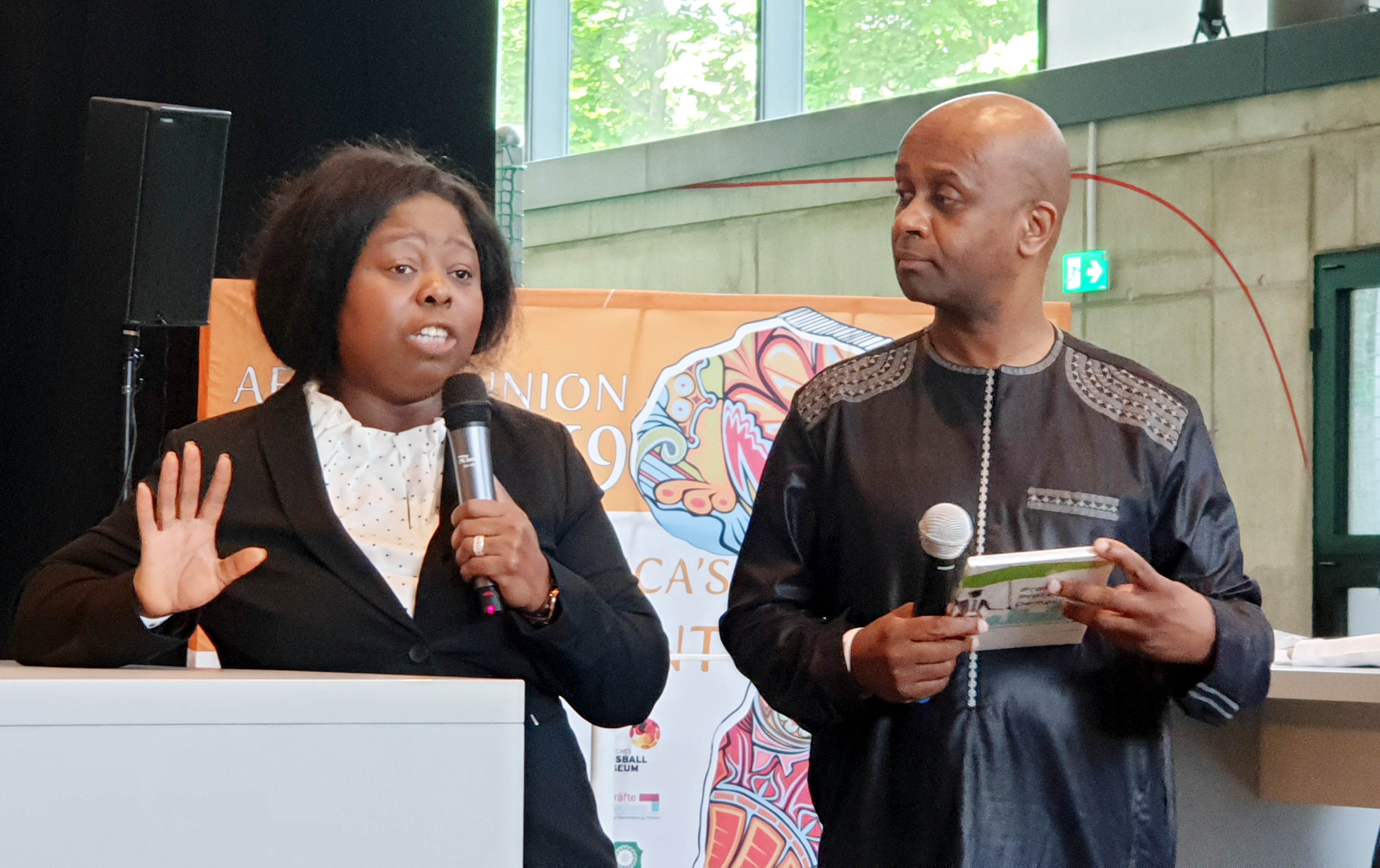
“The practices and technology will in turn increase productivity and efficiency in the economy at large, creating benefits for both consumers and producers,” she added.
“Countries in Africa are in desperate need of this kind of investment.”
Dressmann said the conference aimed to build enduring bridges between the African Diaspora and friends of Africa in Germany and Europe to enable them become change agents in the continent and active contributors to its development.

Dortmund is partner for Africa
In his speech, Mr Stüdemann, the Director of the City of Dortmund, said Africa offered great potential for economic development, citing the fact that half of the fastest-growing economies in the world currently are in Africa.
The German municipal administrator pointed out that by 2035, Africa would have the largest workforce potential in the world, making it imperative to co-operate with the continent to manage the global challenges of the future.
Stüdemann said the prospects of increased German investment in Africa were great as only about 1,000 of the 3.5 million companies registered in Germany were engaged in the continent.
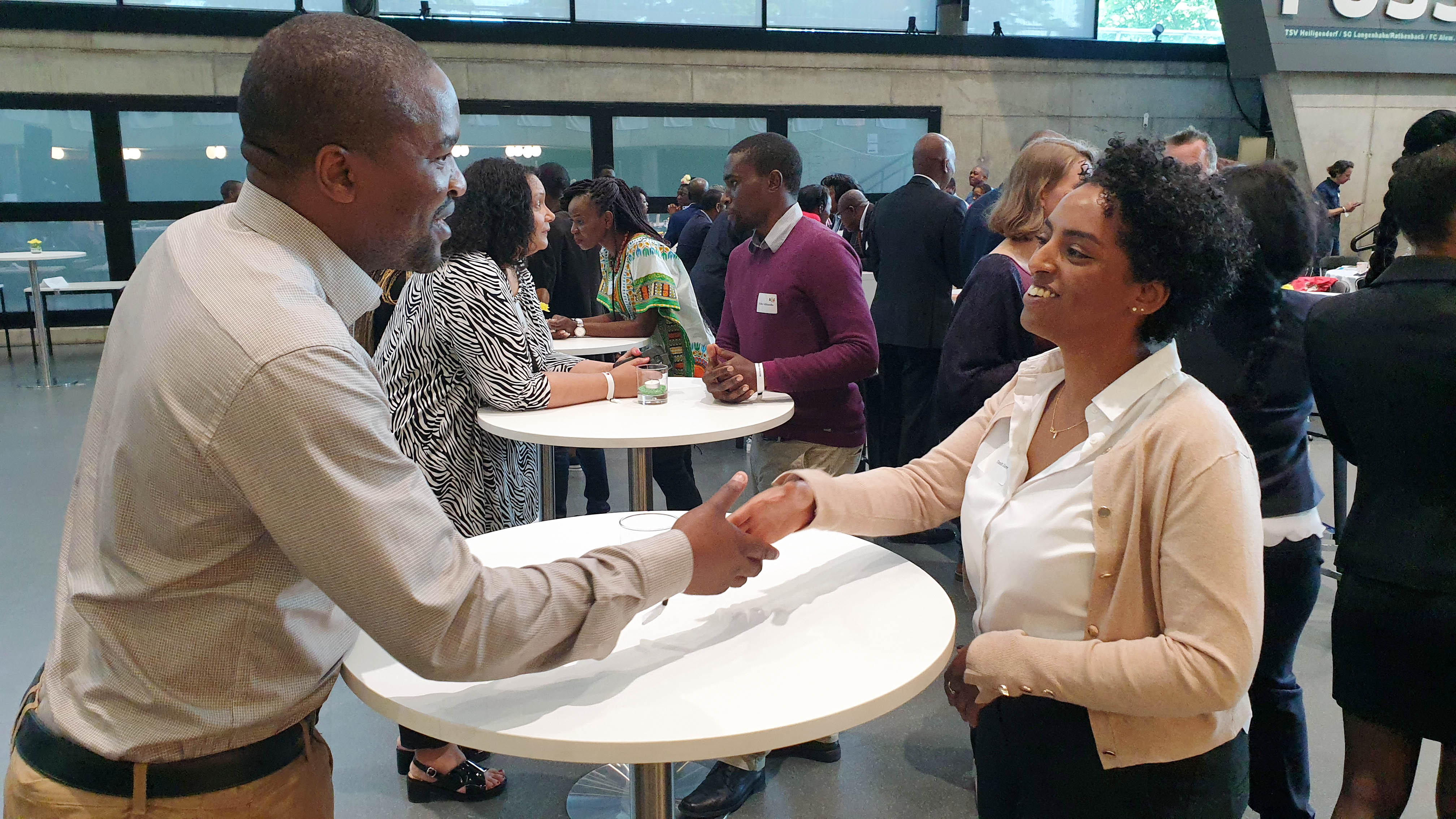
“I was in DR Congo recently and I saw how the Chinese have built a whole district for their engineers, scientists, doctors and other workers, from where they’re building infrastructure across the country,” he said.
“Europe should emulate China in Africa. More German companies should be active in Africa.”
Stüdemann called for human rights-based strategies for a successful implementation of the 2030 Agenda for Sustainable Development and the AU’s Agenda 2063.
The Dortmund director said his city, being a leading centre for technology and research, was well placed to partner with the African tech start-up sector for increased innovation and knowledge transfer.
Stüdemann praised AfricanTide Union for holding the event in Dortmund, a city of 600,000 inhabitants of which about a third is of migrant origin. There are 18,000 inhabitants with African roots in Dortmund which explains why there was an active exchange with African initiatives in the city, he revealed.
Trade instead of aid
Ambassador Mobolaji Ogundero, Deputy Chief of Mission at the Embassy of Nigeria in Germany, called for a paradigm shift in Western relations with Africa. She said trade should be encouraged instead of aid which encourages a culture of dependency in many African countries.
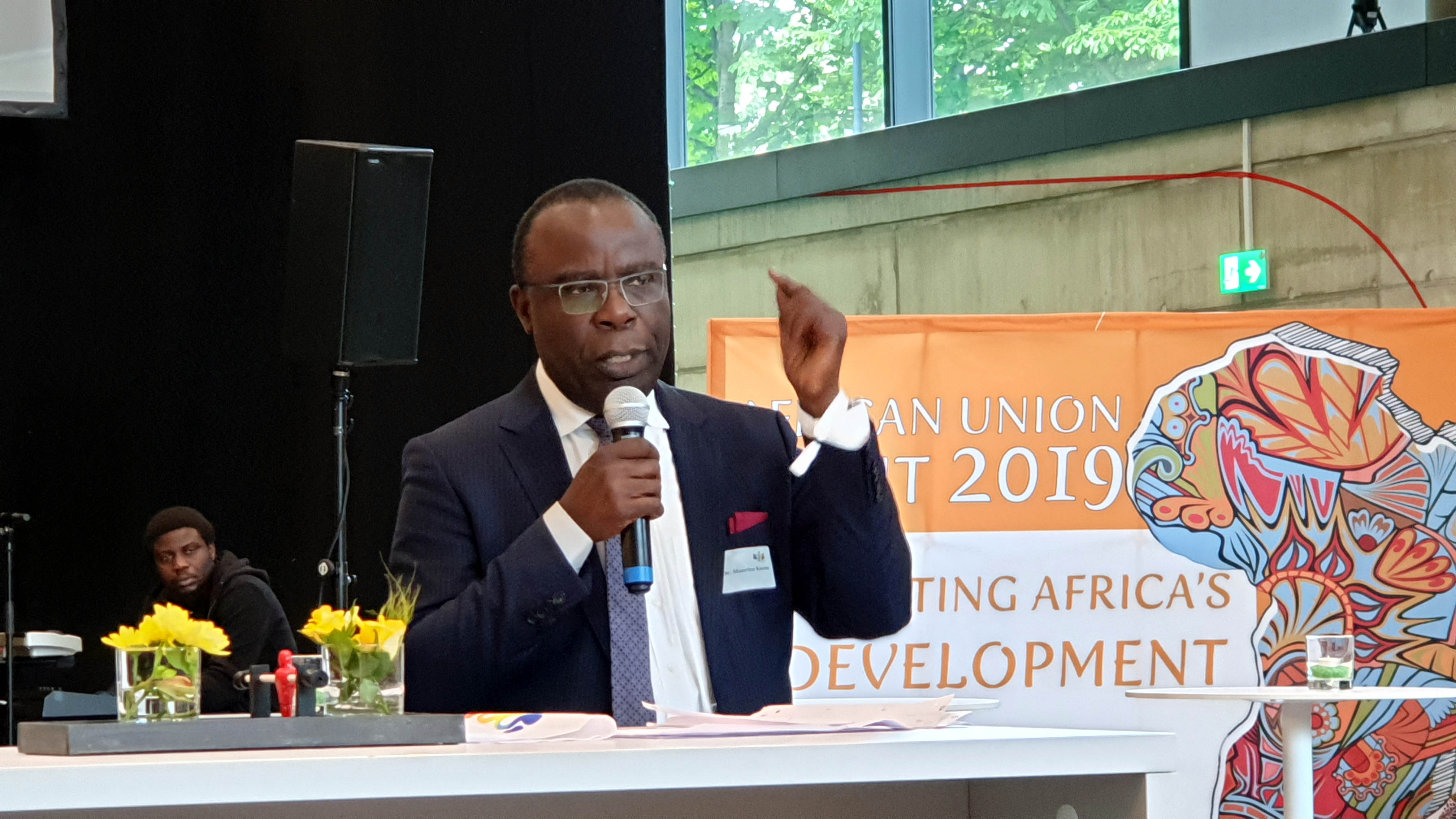
Mrs Ogundero praised AfricanTide Union and the city of Dortmund for hosting the Africa Day and emphasised that the Diaspora had a very important duty, which is to support the development of the continent.
Prof. Jason Osai of the Rivers State University, who came all the way from Nigeria, stressed the role of the Diaspora in African development. He emphasized that Africans living outside the continent had a crucial role to play in resolving the major challenges facing their countries’ development.
The university don said the Diaspora should become advocates for good governance in Africa. “Be involved in the governance of your countries, speak out when you see things going wrong, offer your perspectives on public policies, ” he enjoined the Diaspora.
Read Also Experts speak in Dortmund on mistakes African entrepreneurs in Germany should avoid
Prof. Bodomo of the University of Vienna opined that the major challenge to economic development in Africa was how to transform the continent to a producing economy. This would require the transformation of education in Africa to a skills-based one in addition to improvements in infrastructure.
The professor of linguistics and literatures called on African countries to fashion out the right principles and policies to manage foreign investors. “There’re no good or bad investors. We only need good policies to manage them for our benefit,” he added.
Several workshops dedicated to sub-themes of the conference were held during the 2-day event.
For example, the potential of digital technology to drive economic transformation was addressed in a workshop by Robert Quarshie, who spoke on the blockchain technology and its potential applications. He held the view that virtual currencies such as bitcoin could help stabilize economies and prevent the kind of currency meltdown experienced by Zimbabwe. It could also help guard against currency turbulences which discourage investment.
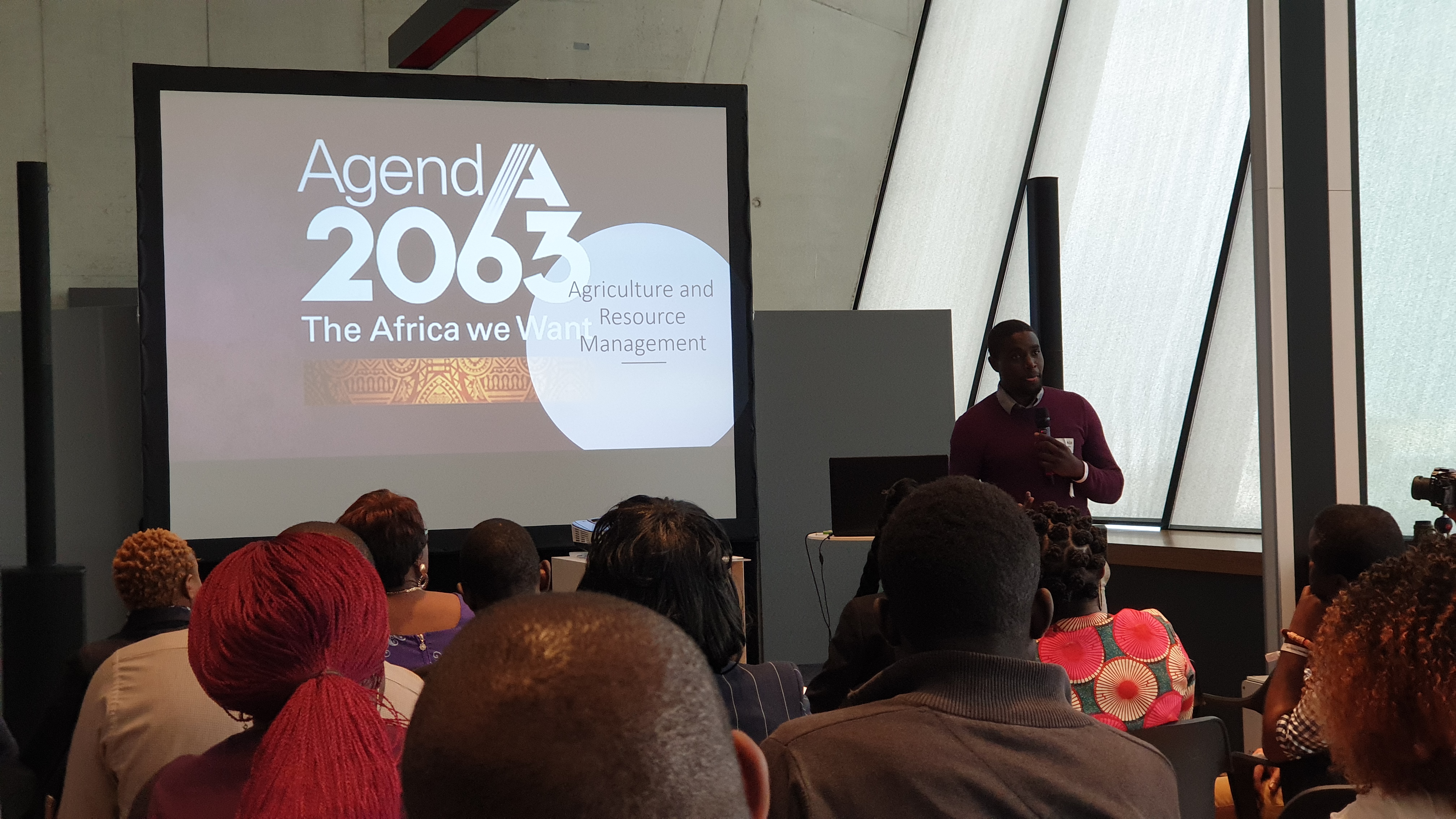
Moses Acquah, founder of Afrolynk, also held a workshop on starting e-business in Africa while Kizito Odhiambo spoke on ‘Agriculture and Resource Management’ based on his practical experience in his native Kenya.
Clément Klutse and Ibrahim Gueye jointly made a presentation on the need for the professionalization of Black businesses in Germany. And Babatunde Ogboru talked about the Afro German Academic Network (Afro Deutsches Akademiker Netzwerk or ADAN), of which he’s a cofounder, and its work to promote Africa.
Other speakers include Collins Nweke, a municipal councillor in Belgium, who delivered a paper on developing young people for leadership while Bridget Fonkeu spoke on ‘Education as a Bridge to Socioeconomic Dissimilarities’.
Moreover, Dr. Maurice Kwem spoke on ‘Equipping Young Africans for the Digital Economy and Global Play’ and a paper by Prof. B. C. Dida, Vice Chancellor of Rivers State University, on ‘Promoting Innovative Economies through Education’ was delivered on his behalf by Prof. Osai.
Read Also: Africa glows in Dortmund
Another major feature of the 2-day event was the Young Leaders Forum, bringing together future executives from Africa and the Diaspora to exchange ideas and experiences. The aim was to enable the young people address issues such as cultural identity and structural disadvantages, and encourage them to become co-designers of Africa’s future.
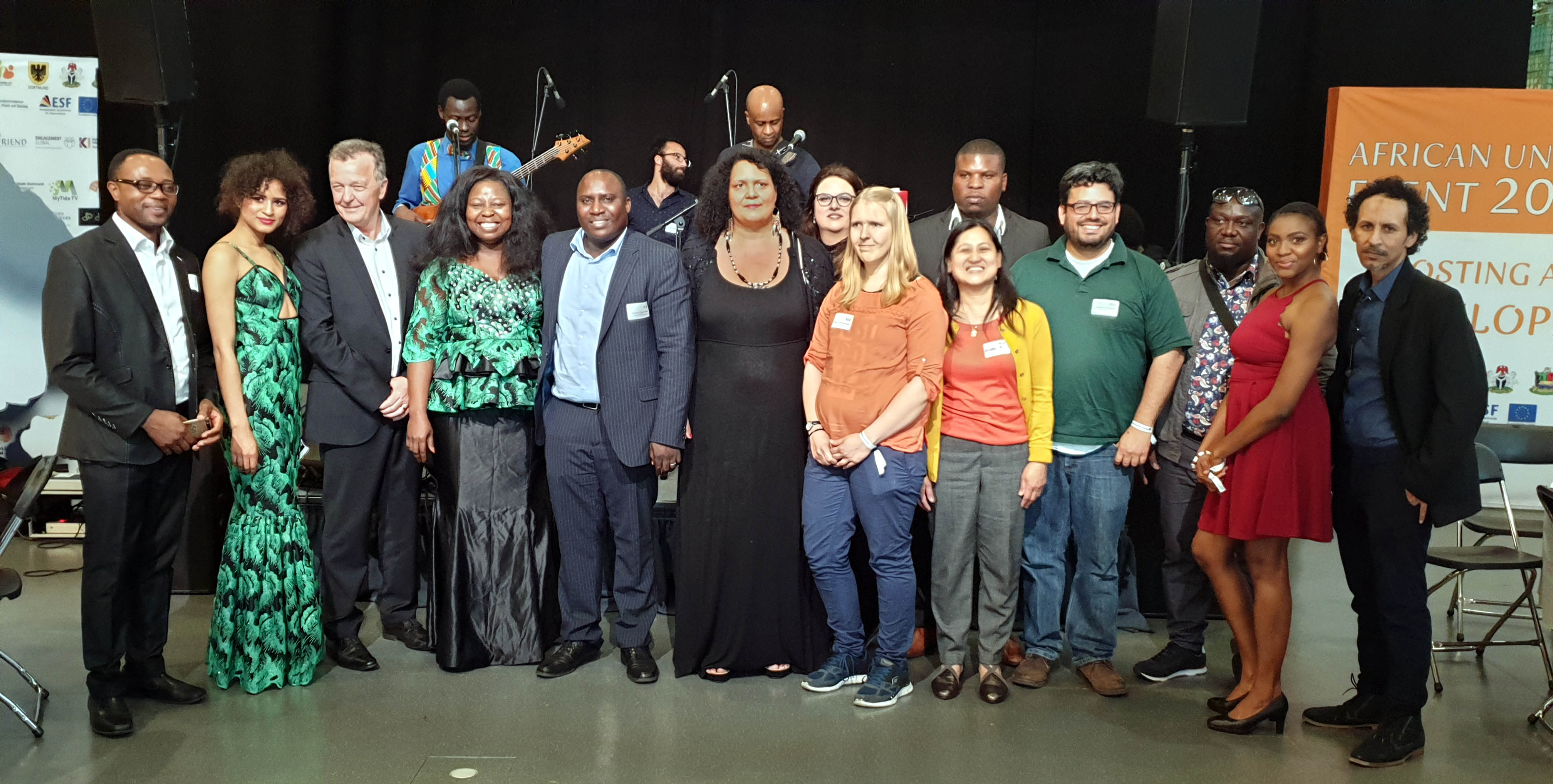
Other dignitaries at the African Union Day Dortmund 2019 were Grace Obar, London- based chartered accountant, Vire Komolafe, Secretary-General of the Nigerians in Diaspora Organization Europe (NIDOE), who came from Dublin, Dr. Obiora Nduka-Agu, Prof. Abaribe Anyanwu and Clara Meierdierks, an author and motivational speaker.
Femi Awoniyi
About AfricanTide Union:
AfricanTide Union develops strategies for a successful knowledge transfer. It helps migrants and professionals to always have the right answers to the ever-changing challenges of African-European business relations.
In collaboration with institutional partners, the AfricanTide team has built up an international network. Sustainable training concepts enable better chances on the job market and a successful life plan of individuals.
The organisation offers contacts and consultants – to both African and European companies. With its know-how it enables better business relations – transparent, fair and non-bureaucratic.
More information about AfricanTide Union at: http://africantide.com
 THE AFRICAN COURIER. Reporting Africa and its Diaspora! The African Courier is an international magazine published in Germany to report on Africa and the Diaspora African experience. The first issue of the bimonthly magazine appeared on the newsstands on 15 February 1998. The African Courier is a communication forum for European-African political, economic and cultural exchanges, and a voice for Africa in Europe.
THE AFRICAN COURIER. Reporting Africa and its Diaspora! The African Courier is an international magazine published in Germany to report on Africa and the Diaspora African experience. The first issue of the bimonthly magazine appeared on the newsstands on 15 February 1998. The African Courier is a communication forum for European-African political, economic and cultural exchanges, and a voice for Africa in Europe.




























